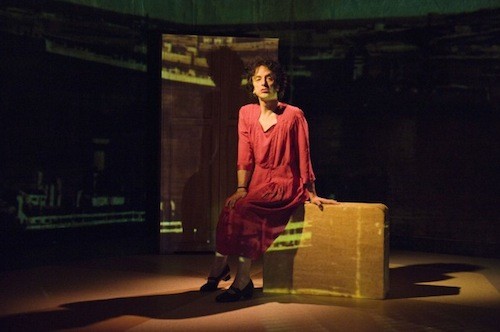
If there is one thing that the privately owned airlines of Australia, lead by the Qantas group, the Virgin group, and REX would urge the Abbott government NOT to sell to a private owner it would have to be the air traffic control provider, AirServices Australia.
But it is on the list.
It may even have been fleetingly thought about at times by some in the Rudd, Gillard, Rudd again government, more out of desperation than a matter of committed ideological values that favour the retreat of Government from any activity that might attract a good price, and cease to be a state funded obligation.
For the purposes of this conversation, let’s focus not on the political divide over public and private ownership and responsibility for essential service providers, but the state of AirServices Australia, the nature of the asset and the consequences of a sale of something which exercises monopoly pricing over its product, which is keeping airliners a safe distance apart.
In FY 2013 AirServices separated (but at times not nearly as professionally as required) over four million aircraft from each other, made an operating profit after tax of $63.1 million, paid the Commonwealth two dividends totalling $21 million, claimed an after tax return on average equity of 14.8%, spent $185.1 million on its capital expenditure program, and employed 4204 people, including many who appear to spend most of their time on parasitical power plays similar to those of North Korea minus for the time being firing squads.
Or so it appears, at times.
In terms of safety, AirServices Australia, figures prominently in Australian Transport Safety Bureau reports into numerous serious incidents in which a regular theme is incompetent and unprofessional actions by ATC officers who were incompletely trained, or possibly fatigued, or both.
The reports are usually ignored by the general media because they require journalism, rather than the receipt and redirection of public relations statements.
In recent years AirServices Australia has lost track of airliners, lied about losing track of airliners, improperly notified the ATSB of an incident, only to be forced to correct its notification, left inadequately trained staff on duty even after their being involved in serious incidents, allowed one aircraft to fly to its doom even after detecting that it was off course, and had instances where the intervention of line pilots was a factor in averting a serious incident because of hopelessly incompetent behaviour by a console operator.
It has been a disgrace, and that doesn’t include serious questions that have been raised by excessive credit card spending.
One might reasonably conclude that this all sounds like a very good case for selling it off to a ruthlessly efficient private owner, except that such an owner will have to invest a very significant sum to train staff and retain those who in recent years have left the organisation in droves for far better conditions, and professional respect, working for foreign ATC providers.
AirServices Australia is currently under new management. It has a very difficult task to keep appropriately skilled and recurrently trained staff in the numbers necessary to deliver its services to airlines. It has a legacy of stuff ups to fix, and there is no instant, overnight fix.
And even though it has a monopoly on providing its essential services, it may not have anything like the pricing power this might imply, because it wouldn’t take much by way of increased charges to destroy a very large number of already marginal rural routes flown by the likes of REX, Virgin Australia, Qantaslink, the defunct Brindabella Airlines, and a host of third tier regional carriers.
It would be fair to predict some tension within the coalition between National Party members and the transport minister and deputy PM, Warren Truss himself, and the Liberals with their total indifference to the bush, if not a thinly disguised desire to drive all those irritating rural bug smasher flights out of the way of their big flash intercity and international jets on the clogged runways of Sydney and Brisbane airports.
Selling AirServices Australia has DON’T GO THERE, written all over it. But that alone is unlikely to stop the government going there.








Crikey is committed to hosting lively discussions. Help us keep the conversation useful, interesting and welcoming. We aim to publish comments quickly in the interest of promoting robust conversation, but we’re a small team and we deploy filters to protect against legal risk. Occasionally your comment may be held up while we review, but we’re working as fast as we can to keep the conversation rolling.
The Crikey comment section is members-only content. Please subscribe to leave a comment.
The Crikey comment section is members-only content. Please login to leave a comment.